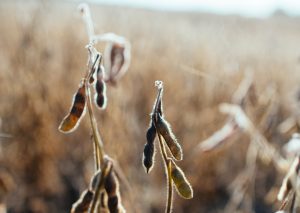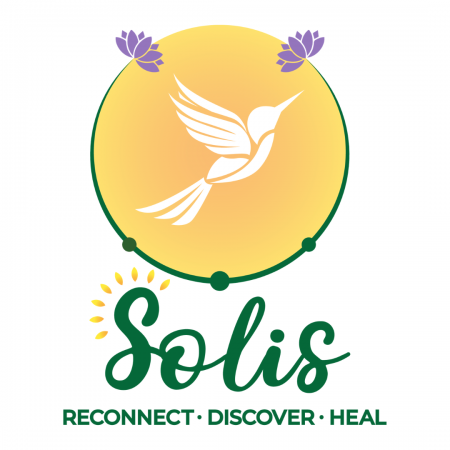One of the most hotly debated topics in both the alternative and the conventional worlds of cancer care is soy and whether it is protective or harmful when it comes to breast cancer and other hormone-driven cancers.
What are xenoestrogens?
Soy is a phytoestrogen, which means that it mimics estrogen, and this is what has led to the long-held belief by many that you should avoid soy if you have been diagnosed with breast cancer or a hormone-driven cancer. Although phytoestrogens are technically under the umbrella of xenoestrogens, phytoestrogens occur naturally in many plants and whole foods, while xenoestrogens are primarily man-made and come from chemicals, like BPA used in plastics. Xenoestrogens are particularly harmful to your health because of their chemical source, their ability to bioaccumulate (build up in your body), and disrupt hormone pathways leading to, among other things, hormone imbalances like estrogen dominance [1]. They should be avoided as much as possible by staying away from the use of plastics and choosing body care, makeup, and cleaning products that don’t contain harmful chemicals.
How do phytoestrogens differ?
 Things are much different, however, in the case of phytoestrogens, like soy. Research indicates that the compounds responsible for the estrogenic activity of phytoestrogens bind to both estrogen receptor types more readily than synthetic xenoestrogens. And once bound, it is extremely interesting to note that these compounds do not act like a typical estrogen agonist (something that activates biological processes in cells, including cancer cells, like biological estrogens activating hormone receptor positive cancers). Instead, once bound to the receptors, most phytoestrogen compounds act more like selective estrogen receptor modulators (SERMS) such as the breast cancer drug Tamoxifen [2]. Essentially, phytoestrogens take up the spot on the receptor and block biological estrogen from binding, giving phytoestrogens their Tamoxifen-like activity.
Things are much different, however, in the case of phytoestrogens, like soy. Research indicates that the compounds responsible for the estrogenic activity of phytoestrogens bind to both estrogen receptor types more readily than synthetic xenoestrogens. And once bound, it is extremely interesting to note that these compounds do not act like a typical estrogen agonist (something that activates biological processes in cells, including cancer cells, like biological estrogens activating hormone receptor positive cancers). Instead, once bound to the receptors, most phytoestrogen compounds act more like selective estrogen receptor modulators (SERMS) such as the breast cancer drug Tamoxifen [2]. Essentially, phytoestrogens take up the spot on the receptor and block biological estrogen from binding, giving phytoestrogens their Tamoxifen-like activity.
Additionally, the two types of estrogen receptors are ER-alpha and ER-beta, with ER-alpha stimulating cell growth when it is activated versus ER-beta having anti-estrogenic effects when it is activated. Phytoestrogens bind much more readily to ER-beta receptors (up to 48x more in fact), activating the protective effects of ER-beta [2]. Moreover, in addition to it’s Tamoxifen-like blocking effect, when a phytoestrogen does bind to an ER-alpha receptor, the cell cannot use it in the same way it would biological estrogen, and it therefore has only a fraction of the effect in the cell that estrogen would have on the same alpha receptor [3].
 What does the research say?
What does the research say?
The research on the effects of this activity, however, has been less than conclusive and quite honestly downright contradictory, which is beyond frustrating for those of us trying to figure out the best diet while dealing with cancer. Different studies have resulted in completely opposite results [2], but there has been more and more information lately, particularly that from the work of Dr. Kristi Funk [4], which is swaying me in the direction of eating 2-3 servings (1-1.5 cups) of organic, non-GMO soy a day such as tofu, soy milk, edamame beans, miso, and tempeh. Since soy milk is the easiest, I plan on 1.5 cups of soy milk a day, and then I decrease that amount should I also eat something else like tofu or miso.
So, once again, it seems that we come down to finding what you individually are comfortable with. There is plenty of information advising against soy, but there is also plenty of research supporting the inclusion of a modest amount (2-3 servings) of soy a day, particularly of late. Generally, recent and comprehensive reviews of human studies suggest a modest decrease in risk as soy intake increases [2]. And when I interviewed a cancer dietician for the imPOWERED interview series in 2020, someone watching asked what the most important thing to eat for hormone positive breast cancer was, and she said, “It’s going to sound odd, but it’s definitely soy”. That tipped the scales for me personally.
If you would like to learn more, here are some articles supporting the eating of soy and it’s protective benefits:
- Will eating soy increase my risk of breast cancer? – The Mayo Clinic
- Should You Be Eating Soy? Setting the Record Straight! – Dr. Kristi Funk
- Soy, Red Clover, and Isoflavones and Breast Cancer: A Systematic Review – PubMed, NCBI
Do your research, talk to your team (particularly a naturopath or integrative doctor who is likely to have a more holistic knowledge of the debate), and see what feels right to you. It may require some experimenting, adding lots of soy and tracking the results with blood work and maybe a circulating tumour cell test like the Biocept to see how you do. It is important here to note that the research does indicate that when soy isoflavones are isolated, like in supplements or as soy isolate in milks or protein powders, they do have a bad effect on hormone driven cancers, and so soy should only be consumed in whole-food products like those I mentioned above, never in the form of supplements or other isolates. Check the ingredient list, and if you see “soy isolate”, toss it!
I imagine I will have to update this at some point as research continues and more information becomes available, hopefully more concrete and conclusive information! In the meantime,
Happy Healing ❤️
References
- Xenoestrogen – an overview: https://www.sciencedirect.com/topics/agricultural-and-biological-sciences/xenoestrogen
- The pros and cons of phytoestrogens: https://www.ncbi.nlm.nih.gov/pmc/articles/PMC3074428/
- Should You Be Eating Soy? Setting the Record Straight!: https://pinklotus.com/powerup/breastcancer101/should-you-be-eating-soy-setting-the-record-straight/
- Pink Lotus – Power Up (Dr. Kristi Funk’s website): https://pinklotus.com/powerup/




0 Comments
Trackbacks/Pingbacks